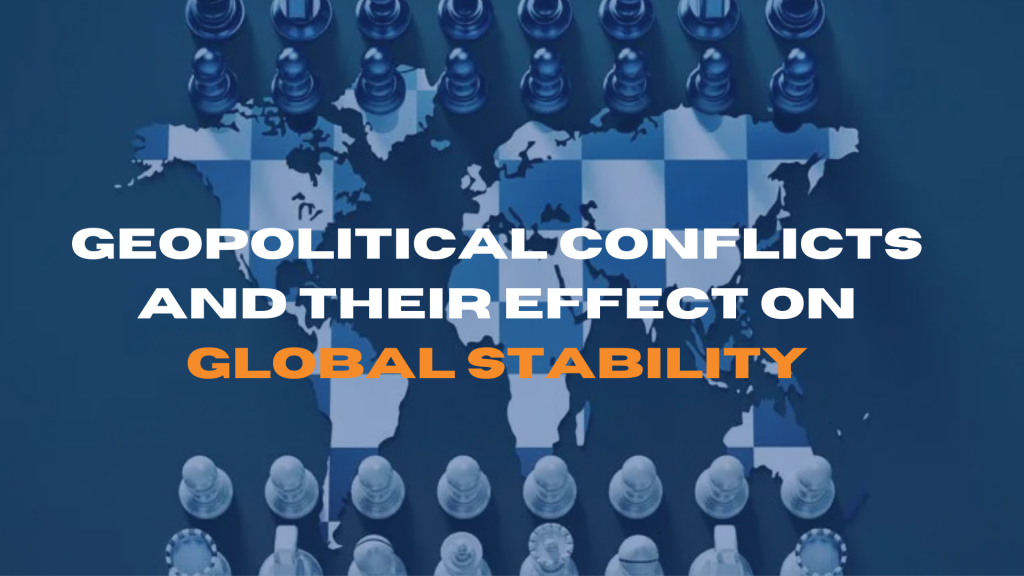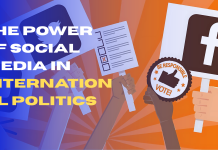In today’s interconnected world, geopolitical conflicts are not just news headlines; they are ripples that affect economies, societies, and individual lives across the globe. As a student preparing for competitive exams, understanding these conflicts is crucial—not only because questions about international affairs might appear in your exam but also because this knowledge shapes your worldview and analytical abilities.

Understanding Geopolitical Conflicts
At its core, a geopolitical conflict arises when countries or political entities clash over territory, resources, ideologies, or strategic interests. These conflicts can take many forms—from military confrontations and economic sanctions to trade wars and diplomatic standoffs. Recent examples include the Russia-Ukraine conflict, tensions in the South China Sea, and the ongoing Israel-Palestine crisis.
For exam aspirants, it’s important to approach these topics not just with factual knowledge but with a nuanced perspective. Understand the historical roots of these conflicts, the key stakeholders involved, and the broader global impact.
The Ripple Effect on Global Stability
When a geopolitical conflict erupts, its impact often goes beyond the immediate region. It can destabilize economies, disrupt global trade, lead to humanitarian crises, and even shift the balance of power among nations.
- Economic Implications: Wars and conflicts often lead to market volatility. For instance, the Russia-Ukraine conflict sent shockwaves through global energy markets, leading to rising oil and gas prices. Countries dependent on imports from conflict zones often face supply chain disruptions, inflation, and economic slowdown.
- Humanitarian Crisis: Conflicts displace millions, leading to refugee crises. The impact on civilians is devastating, with families losing homes, children being deprived of education, and communities struggling with poverty and insecurity.
- Political Repercussions: International alliances are tested during conflicts. Organizations like the United Nations, NATO, and the G20 often play roles in mediation, sanctions, or peacekeeping efforts. These geopolitical dynamics can alter global alliances, impacting trade policies and diplomatic relations.
As an aspirant, these insights help you analyze questions in exams related to international relations, current affairs, and general knowledge.
Connecting the Dots: Why Should Students Care?
It’s natural to wonder why geopolitical conflicts matter to a student whose primary goal is to clear an exam. The answer lies in the evolving pattern of competitive exams themselves. More than rote learning, exams today test your analytical thinking, awareness of current affairs, and your ability to connect global events to local impacts.
For instance, if a question asks about inflation in India, knowing how global conflicts affect oil prices and, subsequently, domestic inflation, can set your answer apart. If an essay topic is on international organizations, citing real-world examples of how these bodies respond to conflicts can add depth to your response.
Moreover, being aware of global conflicts fosters empathy. When you read about refugee crises or economic hardships in war-torn regions, it broadens your perspective and enhances your ability to write essays or answer interview questions with a balanced and informed approach.
Preparing Strategically: How to Stay Informed Without Feeling Overwhelmed
With so much happening around the world, keeping up with geopolitical events can feel overwhelming. Here are some practical tips:
- Stay Updated: Follow credible news sources and dedicate 10-15 minutes daily to current affairs. Focus on understanding the ‘why’ and ‘how’ of events, not just the ‘what.’
- Make Notes: Maintain a current affairs notebook. When you read about a conflict, jot down the key points, including historical background, current status, and global impact.
- Connect with Syllabus: When studying subjects like economics, political science, or history, try to link theoretical concepts with real-world events. This approach not only enhances retention but also boosts your analytical thinking.
- Practice Mock Questions: Many exams include current affairs sections or essay writing. Practice with mock tests or sample questions related to geopolitical issues to build confidence.
Turning Challenges into Opportunities
While geopolitical conflicts often bring challenges, they also offer learning opportunities. Many great leaders, diplomats, and policymakers emerged from challenging times. As a student, if you cultivate a habit of learning from global events, it will not only help you in exams but also prepare you for future roles where you might contribute to society, perhaps even in policy-making or administration.
Summing Up
At the end of the day, understanding geopolitical conflicts and their impact on global stability is not just about scoring marks. It’s about becoming a well-informed individual who can navigate complex global scenarios with clarity and empathy. Whether you’re preparing for civil services, banking exams, or any other competitive test, a strong grasp of current affairs will empower you to write with depth, speak with confidence, and think critically—qualities that go a long way, both in exams and in life.
Stay curious, stay informed, and remember—every page you read and every news story you analyze brings you one step closer to your goal. You’ve got this!
At ixamBee, we specialize in providing comprehensive online courses for government exams and online courses for government jobs. Our expertly designed courses for government jobs cater to a wide range of upcoming government exams. Whether you’re preparing for specific courses for government exams or seeking general guidance, ixamBee offers the resources like Beepedia previous year papers, SSC CGL, SSC CHSL, SSC MTS and other mock tests to succeed in exams like RBI Grade B, SEBI Grade A, NABARD Grade A, RRB NTPC, SSC MTS, NIACL Assistant, and more.
Also Read:
Global Organizations and Their Functions: UN, IMF, WTO, and WHO
Climate Summits and Global Initiatives Against Climate Change
Major International Treaties and Their Impact on World Politics











